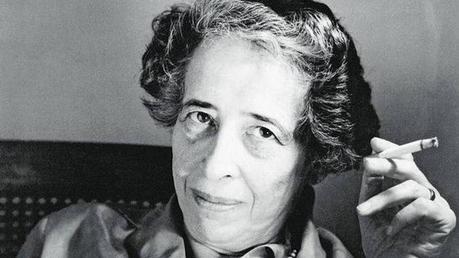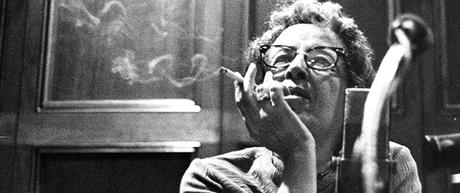Until 18th October, Berlin's Museum of German History will be hosting the exhibition "Hannah Arendt and the 20th Century" which provides the perfect pretext to focus attention on one of the finest minds to have cut a swathe through the history of modern thought. The value of testimony from one of the freest thinkers in the field of political theory is all the greater since it comes from Arendt's own lived experience and is based on an absolute independence of reasoning over and above conventionalism of any kind.
Author: Elena Cué

Hannah Arendt
Until 18th October, Berlin's Museum of German History will be hosting the exhibition "Hannah Arendt and the 20th Century" which provides the perfect pretext to focus attention on one of the finest minds to have cut a swathe through the history of modern thought. The value of testimony from one of the freest thinkers in the field of political theory is all the greater since it comes from Arendt's own lived experience and is based on an absolute independence of reasoning over and above conventionalism of any kind.
It was this freedom of thought that led to the critical questioning of Arendt throughout a 20th century in turmoil. But it was also due to her thinking being a timeless, open discourse that lays no claim to being conclusive. Reluctant to see history as a continuous line of progress culminating in a conclusion, she thinks with critical vision from the present moment in time.
Hannah Arendt (1906–1975), a German philosopher of Jewish origin, was the victim of anti-Semitism and the repression of a political totalitarianism that made her, first, stateless and later in the United States, a refugee deprived of legal or moral rights, a condition that made Jews, wherever they went, in her own words - "the scum of the earth".
The thinking of this leading figure in political theory is very difficult to label. She reflected in depth on the great, dauntingly complex issues of the 20th century such as anti-Semitism, the status of refugees, totalitarianism, Zionism, racial segregation in the US, student protests and feminism, all of which are analysed not only from what might have been the heights of an intellectual ivory tower but also from her own personal experience. Through objects, documents, articles, letters and family mementoes and even a section dedicated to her friends, this exhibition is an invitation to think for oneself, outside the box of any dominant discourse.

Hannah Arendt
{youtube}dsoImQfVsO4|900|506{/youtube}
- Hannah Arendt and the 20th Century - - Alejandra de Argos -

